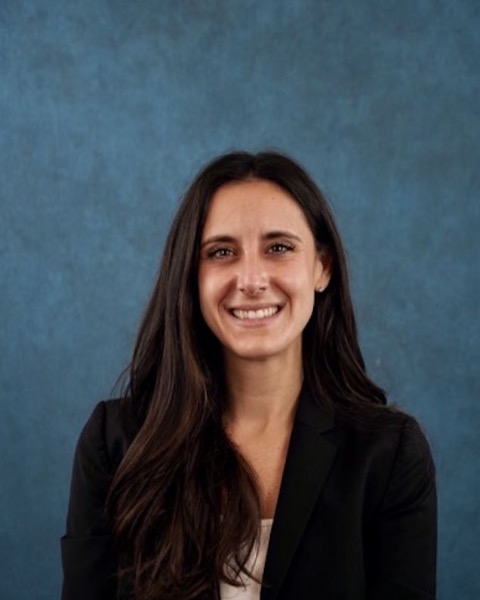Medical Education: Resident
Category: Abstract Submission
Medical Education 15 - Medical Education: Resident VI
291 - Perceived Pediatric Resident Autonomy in the Era of Pediatric Hospital Medicine Fellowship
Monday, April 25, 2022
3:30 PM - 6:00 PM US MT
Poster Number: 291
Publication Number: 291.421
Publication Number: 291.421
Laura Goldstein, Childrens Hospital of Philadelphia, Philadelphia, PA, United States; Julianna J. Lau, Childrens Hospital of Philadelphia, Philadelphia, PA, United States; Hannah R. Ford, Children's Hospital of Phila, Philadelphia, PA, United States; Rebecca Tenney-Soeiro, Childrens Hospital of Philadelphia, Swarthmore, PA, United States

Laura Goldstein, MD
Pediatric Hospital Medicine Fellow
Childrens Hospital of Philadelphia
Philadelphia, Pennsylvania, United States
Presenting Author(s)
Background:
Self-determination theory suggests that learners require perceived autonomy (PA) in order to be invested in learning. Though studies have examined factors impacting trainee PA, few explore the impact of clinical fellows on resident PA. Pediatric Hospital Medicine (PHM) fellows are increasingly present on inpatient resident teaching services, but little is known about the subjective resident experience with PHM fellows, particularly as it relates to PA. Anecdotal evidence suggests PHM fellows may compromise resident PA, which could impact trainee education.
Objective:
To explore pediatric resident perceptions of autonomy when working with PHM fellows, with a specific focus on understanding barriers and facilitators of PA that may inform professional development curricula.
Design/Methods:
In this qualitative study, we conducted virtual semi-structured interviews with pediatric senior residents. We recorded, deidentified, and transcribed interviews for inductive thematic analysis, making iterative adjustments to our codebook and themes until thematic saturation.
Results:
We conducted 9 interviews. Our analysis identified several key themes surrounding PA including 1) factors related to the leadership team (including PHM fellows and attendings), 2) factors related to PHM fellows alone, and 3) external factors.
Residents often conflated the impact of fellows with that of the fellow-attending leadership team as a whole, describing a fellow-attending dyad that could perpetuate an “us vs. them” mentality of residents vs. leadership team, thus compromising PA. Additional leadership factors included redundancy, micromanagement, the degree of autonomy granted to fellows by attendings, and fellow impact on the resident-attending relationship.
Fellow-derived factors impacting PA included fellow training characteristics, fellow confidence, whether the fellow set expectations, and whether residents perceived competition between themselves and the fellow.
Externally, residents highlighted the sometimes-performative nature of rounds and workload as factors impacting PA when working with fellows. They noted that PA could be promoted by intentional design of clinical experiences with fellows, and by improved resident understanding of the fellowship itself.Conclusion(s):
Many factors contribute to the perceived impact of PHM fellows on resident autonomy. While some of those are fellow-derived, many others are related to team leadership overall and to the external system. We suggest resident-derived recommendations for curricular initiatives directed not just at PHM fellows, but at faculty and at program leadership.
Self-determination theory suggests that learners require perceived autonomy (PA) in order to be invested in learning. Though studies have examined factors impacting trainee PA, few explore the impact of clinical fellows on resident PA. Pediatric Hospital Medicine (PHM) fellows are increasingly present on inpatient resident teaching services, but little is known about the subjective resident experience with PHM fellows, particularly as it relates to PA. Anecdotal evidence suggests PHM fellows may compromise resident PA, which could impact trainee education.
Objective:
To explore pediatric resident perceptions of autonomy when working with PHM fellows, with a specific focus on understanding barriers and facilitators of PA that may inform professional development curricula.
Design/Methods:
In this qualitative study, we conducted virtual semi-structured interviews with pediatric senior residents. We recorded, deidentified, and transcribed interviews for inductive thematic analysis, making iterative adjustments to our codebook and themes until thematic saturation.
Results:
We conducted 9 interviews. Our analysis identified several key themes surrounding PA including 1) factors related to the leadership team (including PHM fellows and attendings), 2) factors related to PHM fellows alone, and 3) external factors.
Residents often conflated the impact of fellows with that of the fellow-attending leadership team as a whole, describing a fellow-attending dyad that could perpetuate an “us vs. them” mentality of residents vs. leadership team, thus compromising PA. Additional leadership factors included redundancy, micromanagement, the degree of autonomy granted to fellows by attendings, and fellow impact on the resident-attending relationship.
Fellow-derived factors impacting PA included fellow training characteristics, fellow confidence, whether the fellow set expectations, and whether residents perceived competition between themselves and the fellow.
Externally, residents highlighted the sometimes-performative nature of rounds and workload as factors impacting PA when working with fellows. They noted that PA could be promoted by intentional design of clinical experiences with fellows, and by improved resident understanding of the fellowship itself.Conclusion(s):
Many factors contribute to the perceived impact of PHM fellows on resident autonomy. While some of those are fellow-derived, many others are related to team leadership overall and to the external system. We suggest resident-derived recommendations for curricular initiatives directed not just at PHM fellows, but at faculty and at program leadership.
